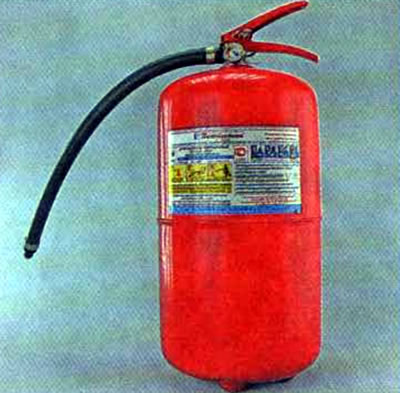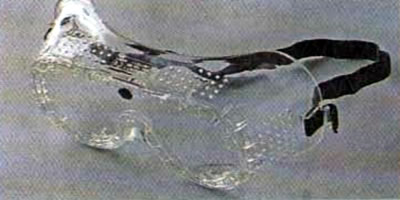Before you go to the garage, be sure to warn your loved ones about this and take your mobile phone with you.
Young children love to watch adults work, but they do not belong in the garage if there is a long and serious repair ahead. Especially if we work with solvents, weld or remove heavy aggregates. Pets are also allowed to stay at home.
Garage doors should open freely and quickly from the inside and out, and if the weather permits, it is generally better to keep them open. The passage to the doors should not be cluttered.
Be sure to place a fully stocked first aid kit in a conspicuous place. The expiration date of her drugs should not be expired.

A serviceable fire extinguisher should always be literally at hand, and not a small one, an automobile one, but a special one, a garage one, with a capacity of at least 5 liters.

Exhaust gases contain carbon monoxide (CO), or carbon monoxide, is an extremely life-threatening substance, moreover, it is odorless and colorless. Therefore, before starting the motorcycle engine, ensure that the garage room is intensively ventilated (just an open door is not enough). It is necessary to open the gate wide open or, if the repair is carried out in the cold season, to ensure that gases are removed to the outside through hoses tightly worn on the exhaust pipes.
During repairs, the center stand or side stand must rest securely on a solid surface. Otherwise, the motorcycle may fall, with all the resulting injury and damage.
You should start work only after waiting for the motorcycle parts to cool completely, this especially applies to the rapidly heating parts of the exhaust system.
Clothing should be comfortable, not restricting movement, without hanging edges and straps that can get caught in rotating mechanisms. To protect your eyes when working with power tools, you will need glasses with plastic lenses (better to use a special transparent mask). Gloves on the hands also sometimes do not interfere, and for some types of work they are simply necessary.

Before starting work, remove the key from the ignition and, if possible, disconnect the negative cable from the battery terminal.
Be especially careful during any operation on the fuel system, even a small amount of spilled fuel should be removed immediately with a rag (which you immediately take out the door) and ventilate the room. Until the smell of gasoline disappears, do not work with open flames, turn electrical appliances on and off, or remove and attach terminals to the battery terminals. Despite its small size, a motorcycle battery produces hydrogen during operation and charging, which, when mixed with oxygen, forms an explosive mixture. To avoid an explosion, do not work with electrical appliances near the battery being charged, and before connecting or disconnecting the charger to the battery, wave plywood over it. All of the above applies not only to gasoline, but also to various solvents, the concentration of which in the air can become dangerously high when painting or washing parts.
Smoking is prohibited in the garage, even if there is no direct contact with fuel or other flammable liquids during work.
Tools and various devices should be of the highest possible quality and in good working order. Open-end, adjustable, and ratchet wrenches should be used only in cases where no other tool is applicable or for minor connections. For «serious» bolts and nuts need tool heads with a reliable wrench, in extreme cases, strong box wrenches. Applying a lot of force, pull the key towards you, this will reduce the likelihood of injury if the key breaks.
A power tool with an operating voltage of 220 V must be reliably grounded if grounding is provided for by its design.
The battery is filled with electrolyte - an aqueous solution of sulfuric acid. It is poisonous and causes burns to the skin and mucous membranes, and in addition, it leads to corrosion of parts and burns through any tissue. Be careful! Electrolyte that gets into the eyes should be washed off with plenty of cold water. If the electrolyte comes into contact with the skin, neutralize the acid with a solution of baking soda (not soap!). Clean water and baking soda should always be around when dealing with a battery.
Avoid skin contact not only with electrolyte, but also with any lubricants, solvents, used engine oil, brake fluid. All of them are harmful in one way or another. After work, you can use special preparations for dry cleaning of hands or at least vegetable oil, and then wash your hands with warm, but not hot water and dishwashing detergent. Washing powder for this is better not to use.
Food and a garage are incompatible, it is difficult to observe the rules of hygiene here.
When finished, dispose of the oily rags. Do not leave flammable liquids (including oil) in an open container.
When leaving the garage, be sure to turn off all electrical appliances.
